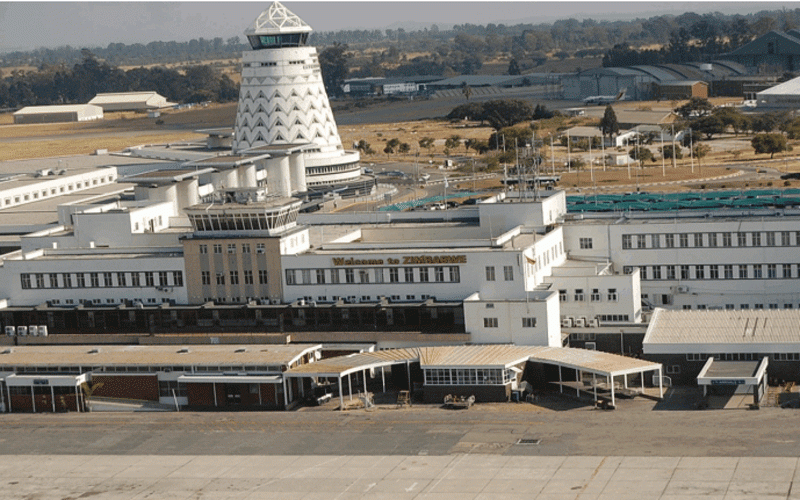
President Emmerson Mnangagwa has been sworn into office three times in six years, and in his inauguration speeches in November 2017, August 2018, and September 2023, he promised radical reforms aimed at fostering 're-engagement'.
His public relations team and state media make strenuous efforts to portray him as a reformist committed to expanding democratic freedoms for citizens whose bar had been atrociously lowered by his predecessor, the late former president Robert Mugabe.
Under the Second Republic, Mnangagwa pledged to repeal oppressive Mugabe-era laws hindering press freedom and the right to protest, vowing to cultivate a culture of debate and contestation throughout Zimbabwean society.
Despite these assurances, doubts loitered among Zimbabweans and international stakeholders regarding the sincerity of this 'new dispensation' and his capacity to alter the nation's course.
However, following his victory in the 2023 elections, with his final term underway, discussions about extending his tenure to 2030 or seeking a third term have surfaced in the media, various quarters of the country and within his party Zanu PF.
Slogans and songs like "2030 ED ane achitonga” (2023 ED will be in charge) have begun circulating.
At a recent silver jubilee ordination anniversary of Archbishop Robert Ndlovu of the Roman Catholic Church, the president even joked about ruling indefinitely, sparking speculation about his intentions.
While the constitution prohibits such extensions, in a country where the seemingly impossible becomes reality, one wonders which tactic the president might employ to prolong his rule given the fact that his party, Zanu Pf, now enjoys the majority in Parliament.
- Corruption Watch: Get scared, 2023 is coming
- Corruption Watch: Get scared, 2023 is coming
- Letters: Ensuring Africa’s food security through availability of quality seeds
- Is military's involvement in politics compatible with democracy?
Keep Reading
This was necessitated after some recalls in the now fragmented and derelict opposition saw the seats being taken by Zanu Pf through bye-election victories. Will the President read from the Togolese President Faure Gnassingbé playbook? Will he pass the democracy litmus test? Only time will tell.
Given Zimbabwe's history, characterised by late Mugabe's refusal to relinquish power until a military coup ousted him in 2017, one would expect Mnangagwa to avoid repeating such mistakes.
Breaking with the past also entails Mnangagwa shunning term extensions or clinging to power beyond constitutional limits.
Establishing a positive legacy should be his priority.
There's no justification for flirting with the notion of a third term. While there may be calls from his family, close quarters or supporters for an extension, the president stands at a critical point in time where he must demonstrate his authenticity, leadership, and commitment to democratic principles.
This is a time where his influence as a leader is important.
It is an opportunity for Mnangagwa to prove to his supporters and the nation that leaders are temporary custodians of power.
Following Mugabe's disastrous prolonged tenure, Mnangagwa has the chance to set a different precedent or trajectory by upholding term limits.
This decision would elevate him, signalling a departure from the past and inculcating a new era of politics within his party and the nation.
At a time when the opposition is weakened, such a move would strengthen Zanu PF more and renew confidence in the country’s political system.
While there may be other legacy projects such as the refurbishment of the Robert Gabriel Mugabe International Airport and Beitbridge border post, the roadworks on the busy Harare-Beitbridge highway and the diplomatic juggernaut of having countries like Kenya scrap visa fees for Zimbabwean nationals while other Sadc countries are being made to pay attest to the work that Mnangagwa has done, the decision to pass on the leadership button and not seek a third term would be a masterstroke.
It would bring in a new kind of politics within his ruling party and the country, a feat which his political godfather Mugabe failed to achieve.
This act would put Mnangagwa on a high pedestal, demonstrating that he has been considering the transition of power since assuming the presidency.
In any case, he will be 86-years-old, a milestone in a country where life expectancy for men is only 62 years. As the old adage says, a good dancer knows when to leave the dance floor.
Taking a cue from his Mozambican counterpart, President Filipe Nyusi, who recently oversaw a smooth transition within Frelimo, Mnangagwa has an opportunity to emulate such leadership.
The recent appointment of 47-year-old Daniel Chapo as presidential candidate and interim secretary-general, showcased a commitment to party principles and a smooth succession process.
By observing this example, Mnangagwa could demonstrate integrity and respect for democratic norms, which would steer Zimbabwe towards stability and democratic predictability.
It is an opportunity for him to learn also from Senegal’s now former president Macky Sall, who also tried to extend his term limits through various nefarious tactics but later abandoned it when sanity prevailed.
It's essential for the president to heed the voices of Zimbabweans, who according to Afrobarometer survey data, have overwhelmingly supported two-term limits over time since 2002.
The data reflects the will of the people, and the voice of the people is the voice of God!
*Nyasha Mcbride Mpani is the project leader for the Data for Governance Alliance Project at the Institute for Justice and Reconciliation based in Cape Town









